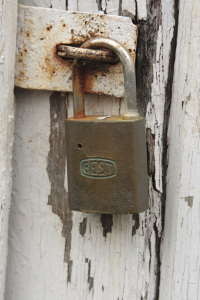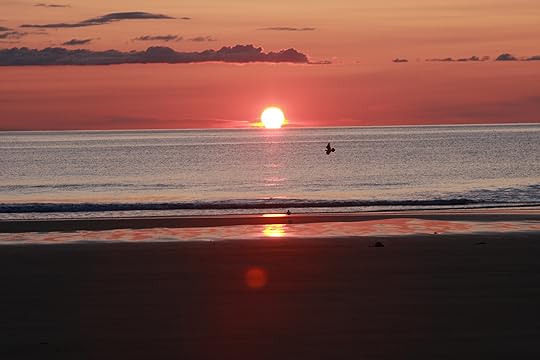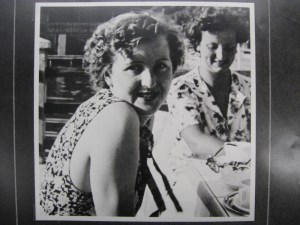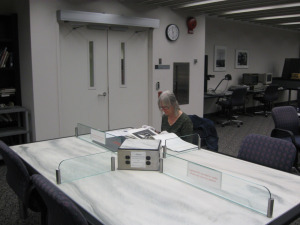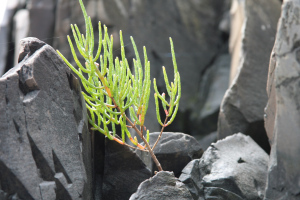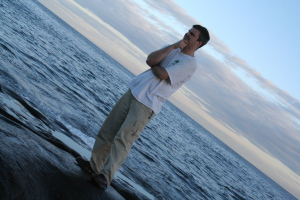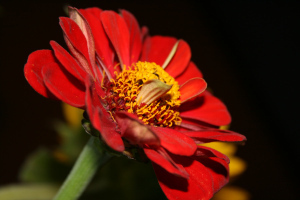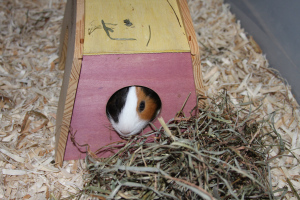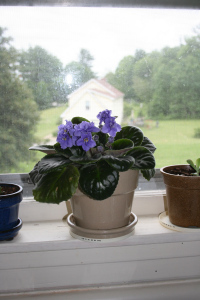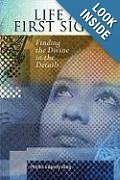Phyllis Edgerly Ring's Blog, page 52
July 28, 2013
Divided within ourselves
It’s a week of moving through, and being moved by, remembrances of war:
WWII relics at the National Archives. A riveting exhibit of photograph “portraits” of war at the Corcoran Gallery of Art. My first visit to the overwhelming enormity, and silent power, of the Vietnam War Memorial.
A tour of the headquarters of the Red Cross helped me understand its roots – it exists because the first Nobel-Peace Prize winner, Swiss businessman Henry Dunant, was so overcome by emotion at the sight of the unattended wounded on an Italian battlefield that his subsequent efforts led to the both the Red Cross and the Geneva Convention.
It was a battlefield a fraction of the size of the area I’ll tour today at Gettysburg.
All week, my thoughts have turned to all that ‘Abdu’l-Baha said when he visited the U.S. in 1912, that it’s time for a whole world to understand what the Dalai Lama has summarized in this way:
 At the end of a talk, the Dalai Lama was asked: “Why didn’t you fight back against the Chinese?”
At the end of a talk, the Dalai Lama was asked: “Why didn’t you fight back against the Chinese?”
He looked down, swung his feet just a bit, then looked back up and said with a gentle smile, “Well, war is obsolete, you know “
Then, after a few moments, his face grave, he said, “Of course the mind can rationalize fighting back … but the heart, the heart would never understand.
“Then you would be divided in yourself, the heart and the mind, and the war would be inside you.”
Artwork courtesy of Nelson Ashberger.


July 27, 2013
Why I wake early
The sky is the daily bread of the eyes. ~ R.W. Emerson
Far away in the sunshine are my highest aspirations. I may not reach them, but I can look up and see their beauty, believe in them, and try to follow where they lead. ~ Louisa May Alcott
Song of the Builders
On a summer morning
I sat down
on a hillside
to think about God -
a worthy pastime.
Near me, I saw
a single cricket;
it was moving the grains of the hillside
this way and that way.
How great was its energy,
how humble its effort.
Let us hope
it will always be like this,
each of us going on
in our inexplicable ways
building the universe.
~ Mary Oliver, from Why I Wake Early, 2004 


July 25, 2013
Search: best part of “research”
This week, I don a pair of white cotton gloves again as I make my second visit to the National Archives.
Poring over 35 photograph albums of Eva Braun’s, I recall my last experience here three years ago – a mad-rush count-down to get through them all before I had to leave. Overwhelmed as I encountered the albums for the first time, I was attempting to encompass 33 years of one life in the equivalent of two afternoons.
Years of reading and research later, including interviews with some of those who met the subject of my search, my approach is more like forensics, now, as I watch for patterns and connections that form a larger picture.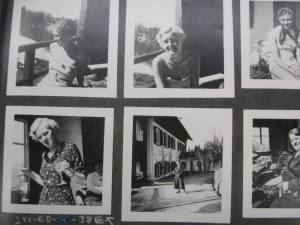
There are many photos on these pages whose settings and significance I can spot more readily, based on who is present, clues in the background of interiors and landscapes, or even the clothes that are worn.
But it’s that most-elusive quarry that I’m watching for — the evidence of the emotional side of things.
I couldn’t help but zero in on the externals last time. But now, the years I’ve spent following the trail of this life, as my novel’s protagonist does, have led somewhere deeper.
In much the way I can with photos of those whom I know, I can tell when a day was a joy, or a strain; when a smile was a spontaneous response, or a tight, forced mask.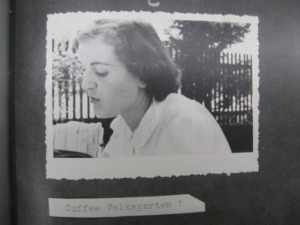
“May I always stay this way” one typewritten caption proclaims of her 18- or 19-year-old self, who had already met her famous lover, 23 years her senior. She is sitting outside over coffee with friends on what was likely a lovely day in Munich.
Her expression seems guileless, innocent. Those who remember her from this time call her vivacious and effervescent.
In time, a kind of golden-cage captivity muted that, some have observed – and she, herself, kept the tightest lock on that cage, denying her own freedom and possibilities.
Four years onto this trail, I troll these hundreds of images again, watching for the signs of where the shifts came. Watching for those large and little junctures at which a life was repeatedly bartered away in the shadow of another, to the detriment of its self.
Phyllis Edgerly Ring’s novel-in-progress, Ordinary Girl, follows a similar trail when its protagonist discovers that her mother had a secret friendship with Eva Braun.
More images can be seen at: http://pinterest.com/phyllisedgerlyr/


July 23, 2013
Guest Post: Alive in the moment
 It’s my privilege to share a thoughtful writer friend’s guest post here this week.
It’s my privilege to share a thoughtful writer friend’s guest post here this week.
Karen K. Mason ponders how a writer is often moved toward “placing the particular against the larger backdrop”.
This can lead to a kind of being alive in the moment that “makes it possible to be aware of other dimensions of the reality I’m inhabiting”.
Alive in the Moment
by Karen K. Mason
To write, for me, is the opportunity to reflect and ruminate – and be surprised by my own spontaneous emotion if some forgotten memory should surface in the process of writing.
Of course, a lot of writing I do is like the journalistic news article, a straight presentation of what happened to whom. The challenge is then to get the story “straight”. This kind of writing or reporting requires me to concentrate on information. It’s good mental exercise that disciplines my craft and develops skills in the areas of critical thinking and communication. But when the writing task is to share my views confidently with a wider audience, the process of wrestling with a complex issue means that, as I look for the piece of the issue that speaks to me, the current topic invariably gets set against another place or time. I end up placing the particular against the larger backdrop, usually societal, that forces me to think and feel outside a knee-jerk response.
 This second more exploratory kind of work is where spontaneous associations with the past leads to insight and personal learning, where being alive in the moment makes it possible to be aware of other dimensions of the reality I’m inhabiting.
This second more exploratory kind of work is where spontaneous associations with the past leads to insight and personal learning, where being alive in the moment makes it possible to be aware of other dimensions of the reality I’m inhabiting.
If my senses are awake to the moment, being alive in the moment adds fuel to the writing process. As my craft has developed writing nonfiction essays and poetry, I’ve discovered sensory memory kicks in to recreate a scene, remind me of my feelings, provide graphic detail, give a name to the thing needing a name or at least clarify it.
No matter how lifeless a topic may first appear, as in “minimum age for a driver’s license”, the details I need to build a case, tell a story, explain a situation come from my personal archive of sensory detail, from testimony and first-person accounts. Sometimes I relive the moment, actually experience it again. More often my thinking process leads to a reconstruction, which helps me analyze the work at hand. To the extent that my senses were awake to the whole moment at the time, the moment recreates itself.
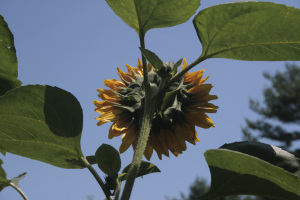 Thinking about the prompt, “minimum age for a driver’s license”, and apart from listing reasons for an argument pro or con, can I even access that period of my life? I remembered that I failed the road test, which led to this:
Thinking about the prompt, “minimum age for a driver’s license”, and apart from listing reasons for an argument pro or con, can I even access that period of my life? I remembered that I failed the road test, which led to this:
Once again I’m 16, being driven home by my mother from the Department of Motor Vehicles. The silence is awkward because normally Mom would be talking, but I sit quietly crying. I must retake the road-test portion of the exam. My future slips further into the distance because I don’t know if I’ll pass the test the next time. This bit opened a window for me onto a particular place and time in my life when days seemed like years.
I attribute my aptitude for life in the moment to family culture and spiritual practice. My family immigrated to America in the 1840s but our roots are in Norway, and family traditions and culture are still closely tied to that country. I’m fifth generation. My family identifies less closely with ancestors these days than in years past, but my approach to life is a die that was cast before I was 10. I had already begun to look at life through the eyes of the immigrant, thanks to the stories I heard from relatives.
 When I was 25, I discovered first-hand what it means to be the foreigner. My husband’s work took us to live for years in Switzerland and later Luxembourg. We moved house many times. Moving often was a reality for my birth family, too. Each time in a new locale I noticed the many ways my otherness rubbed up against the manners of the local population, a habit that as an adult became intentional, building on my natural inclination to live in the moment.
When I was 25, I discovered first-hand what it means to be the foreigner. My husband’s work took us to live for years in Switzerland and later Luxembourg. We moved house many times. Moving often was a reality for my birth family, too. Each time in a new locale I noticed the many ways my otherness rubbed up against the manners of the local population, a habit that as an adult became intentional, building on my natural inclination to live in the moment.
With counter-culture shock upon returning to the US, I began to look for details in place and in people that makes something “American” or “Swiss” – looked for “thing-ness”. The practice of being awake to life for reasons of learning something new enhanced my effort to be “in” a place but not “of” it, which is a spiritual discipline.
It seems to me that what values people display transcend place and time even as they are seen in the moment. So, the spiritual practice helps me perceive the other in a context outside of the physical one we inhabit. This mode of thinking adds another dimension to being alive and leads to being alive to the intangibles that exist in the moment, a kind of out-of-body experience. These are discoveries I’ve made as a writer by developing craft.
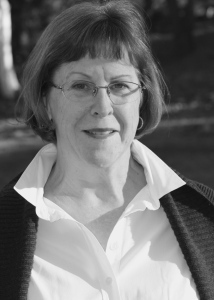 Karen Mason was born and raised in Illinois and spent nearly 20 years in Europe as a result of her husband’s job transfers. She is a teacher by profession, an inevitable choice given her fascination with the contents of the family bookshelf before she could even read. She started writing stories as soon as she was able to write a sentence and turned seriously to poetry in college. Karen has taught writing in Illinois, Geneva and online from Luxembourg. She now lives in New Hampshire with her husband and their dog Lucy.
Karen Mason was born and raised in Illinois and spent nearly 20 years in Europe as a result of her husband’s job transfers. She is a teacher by profession, an inevitable choice given her fascination with the contents of the family bookshelf before she could even read. She started writing stories as soon as she was able to write a sentence and turned seriously to poetry in college. Karen has taught writing in Illinois, Geneva and online from Luxembourg. She now lives in New Hampshire with her husband and their dog Lucy. 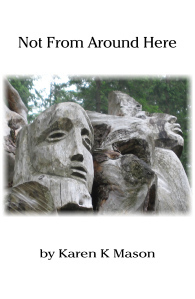
Karen Mason’s chapbook of poetry, Not From Around Here, published by Finishing Line Press in 2013, can be found at: https://finishinglinepress.com/product_info.php?products_id=1638.
July 21, 2013
Justice and progress
“ … a proper understanding of the oneness of humanity implies that any law, tradition or mental construct that grants superior rights or privileges to one grouping of humanity over another is not only morally wrong but fundamentally at odds with the best interests of even those who consider themselves to be in some way superior.
It also implies that nation-states, as contributors to an emerging global civilization, must hold common standards and take active steps to purge from their laws, traditions and practices any form of discrimination based on race, nationality, ethnic origin – or, for that matter, on gender, religion, language or any other individual characteristic or choice.While racial, national and/or ethnic heritage can be sources of pride and a backdrop for positive social development, such distinctions should not become a basis for new forms of separation or superiority, however subtle.
Finally, it implies that justice must be the governing principle of social organization, calling for widespread measures by governments, international agencies and civil society to address economic injustice at all levels.”
~ Baha’i International Community
The statement from which this is taken can be viewed in full at:
http://www.bic.org/statements/statement-2009-durban-review-conference
Photo courtesy Saffron Moser and Nelson Ashberger.


July 19, 2013
The vicinity of appreciation
A phrase in a passage from Abraham Hicks stands out this week: “the vicinity of appreciation”.
“Love and appreciation are identical vibrations,” it says. “Appreciation is the vibration of alignment with who-you-are … When you tell the story of how you want your life to be, you will come closer and closer to the vicinity of appreciation, and when you reach it, it will pull you toward all things that you consider to be good in a very powerful way.”
That certainly leads me to breathe more deeply, and say, “Yes.”
Then, of course, there’s what I “consider to be good”, and why that is, and how open I am about the possibility of its changing. For life continues to show me each day how important – vital — contrast is for observing, discovering, recognizing, and learning.
Even as Thomas Merton said: “The very contradictions in my life are in some ways signs of God’s mercy to me.”
Finally, thanks to The Oneness Model and Becoming the Self Beyond Lore for the reminder about how beneficial it is to “uncover historic perceptions hidden in our belief codes, tucked away and bound to every modality of human experience … all disguised as truth”. Phew!
We always do well to investigate, ask, ponder, and reflect, every single day. And, of course, with as whole a heart as possible, to then take action.
Blessings to every one as another week comes to its close.
Artwork courtesy D. Kirkup Jewelry Designs. 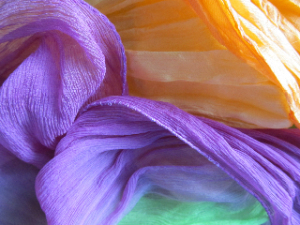


July 17, 2013
Summertime, and the reading is …
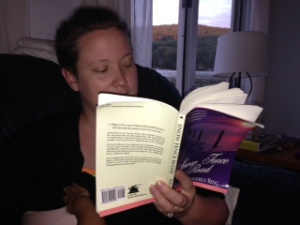 SNOW FENCE ROAD, here and there
SNOW FENCE ROAD, here and there 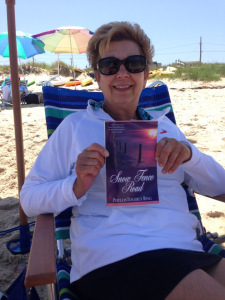
Above left, Samantha French Brown and son, Logan, find a cozy reading spot near New Hampshire’s Mount Sunapee. Above right, Nadine Iglowski with her beach reading on Nantucket.
I love receiving photos like these — please keep sending them!
And thanks so much, Laurie Jenkins, for including an interview about Snow Fence Road on your book blog last weekend:
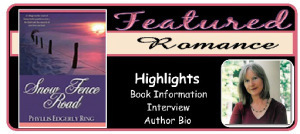 Book-blogger Laurie: Tell us about your current book release.
Book-blogger Laurie: Tell us about your current book release.
PER: Snow Fence Road is a love story about how hearts are healed. Now that even “sweet” romance can lean heavily toward physical attraction and arousal, this book might seem like a vegetarian at the barbecue in terms of how it’s categorized. It aims at more emotional and spiritual themes because in the thousands of lives I’ve encountered, so many wounded — hardened-off — hearts seem determined to believe they’ll never love, or trust love, again. No amount of physical love or attraction heals that, but real love of heart and soul can, and does. The story began when I dreamt the accident experience that shatters its hero’s life as if I were a witness at the scene. I needed the intensity of such an emotional impact to shift into the commitment and focus it takes to write books after 25 years of freelancing for magazines and other publications. Snow Fence Road also explores the weight of secrets – why we keep them, when they drain our life away; when there isn’t even truly need to, though shame and guilt often won’t let us recognize that. Read the interview at Laurie’s blog: http://networkedblogs.com/N5HDL
Find book purchase info. here: http://phyllisedgerlyring.wordpress.com/make-a-beginning-and-all-will-come-right/


July 15, 2013
Perspective IS everything
Two writers help me reorient my attention and focus this week, and I’m always thankful for that.
In days of turbulent extremes and insistent ire that demand an all-or-nothing kind of rightness and wrongness, blogger Barbara Scott Keene reminds that life is complex and can be viewed from various perspectives. In fact, it’s worth making the effort to do so, because most often, things aren’t as they seem – as our thoughts and beliefs would make them seem.
Read her Slice of Life: http://travelinma.blogspot.com/2013/07/topsy-turvy.html
And to discover just how much mind chatter and ego can crowd our moments (and make it awfully difficult to perceive things as they are in reality), Joe Martino at Collective Evolution invites us to “sit and observe everything around you … just observe it. Don’t classify, categorize or judge … Even go beyond the name of something you are looking at.”
Read more about where this can lead at: http://www.collective-evolution.com/2012/02/20/try-this-sit-in-public-dont-judge-anything-you-see/
Enjoy a wonderful week of meaningful discovery.
Photo courtesy Saffron Moser.


July 12, 2013
The week’s gleanings
Some weeks, the internet turns up surprising nourishment for heart, mind, and spirit.
On my reading menu:
Creativity as worship and wonderment, from photographer Harold Feinstein:
http://www.haroldfeinstein.com/journey-into-the-unknown-musings-on-a-life-of-gratitude/
Pondering outer life and inner peace – “Deep Disturbances”, from Strategic Monk Greg Richardson:
http://www.strategicmonk.com/2013/07/06/deep-disturbances/
And Larry Moffitt weighs in on the immortal – not just the part we CAN take with us, but the one we’d actually want to:
http://nhfaithfusion.com/2013/07/going-to-room-temp/
Happy reading, and a happy summertime weekend to all.
Artwork courtesy of Saffron Moser and Nelson Ashberger, photogs extraordinaire, amazing organic gardeners, and all-around fine folks.


July 10, 2013
“Paying” attention = investing in a day
I smiled the first time I saw the empty jug my husband had placed under a leaky faucet before we had time to fix it. That tap only dribbled a drop every 15 to 20 seconds. Yet when I needed cooking water a little later, a full gallon of that water was waiting nearby. Those drops added up, and it felt good to put them to use.
I was reminded that lots of things, including activities and plans and commitments, may not seem like much on their own but add up over time. When a friend shared vegetables from her garden, I realized there was a factor in their healthy growth I’d never been savvy — or disciplined — enough to grasp. I’d avoided thinning my plants and, as a result, hadn’t reaped the benefits that the discernment and choice of thinning requires. Things add up, and can dwarf or glut our lives, and our time, when we don’t make choices.
I had an epiphany about this when I saw a friend ‘s to-do list on which she never plans more than a third of her waking hours. When I asked why, she said, “How else can I leave room for the unexpected, or spontaneity, or even the chance to change my mind?”
“But what about the things you need to do?” I protested.
“Well, who decides that?” she asked, reasonably enough.
Like that jug under our faucet, she reoriented my perspective about the power of awareness, and choice. Attention, time, and energy are resources that reappear in each of my days. But they are not their own stewards.
Adapted from Life at First Sight: Finding the Divine in the Details:
http://rcm-na.amazon-adsystem.com/e/cm?lt1=_blank&bc1=000000&IS2=1&bg1=FFFFFF&fc1=000000&lc1=0000FF&t=leaofthetre-20&o=1&p=8&l=as4&m=amazon&f=ifr&ref=ss_til&asins=1931847673″;

